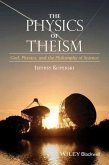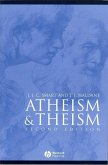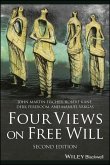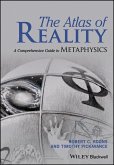An expansive, yet succinct, analysis of the Philosophy of Religion - from metaphysics through theology. Organized into two sections, the text first examines truths concerning what is possible and what is necessary. These chapters lay the foundation for the book's second part - the search for a metaphysical framework that permits the possibility of an ultimate explanation that is correct and complete.
Hinweis: Dieser Artikel kann nur an eine deutsche Lieferadresse ausgeliefert werden.
- A cutting-edge scholarly work which engages with the traditional metaphysician's quest for a true ultimate explanation of the most general features of the world we inhabit
- Develops an original view concerning the epistemology and metaphysics of modality, or truths concerning what is possible or necessary
- Applies this framework to a re-examination of the cosmological argument for theism
- Defends a novel version of the Leibnizian cosmological argument
Dieser Download kann aus rechtlichen Gründen nur mit Rechnungsadresse in D ausgeliefert werden.
Hinweis: Dieser Artikel kann nur an eine deutsche Lieferadresse ausgeliefert werden.
"This trim but highly technical volume is indisensable forscholars and graudate-level researchers in the field. SummingUp: Essential. Graduate students andresearchers/faculty." (Choice, 1 October2012)
"Despite these limitations, this book is worth reading. It willalert theologians to the philosophical strength of cosmologicalarguments and the superficial objections to them. It will alsointerest philosophers of religion and those working on modallogic." (The Journal of Religion, 2011)
"It will alert theologians to the philosophical strength ofcosmological arguments and the superficial objections to them. Itwill also interest philosophers of religion and those working onmodal logic." (Journal of Religion, 1 April 2011)
"O'Connor does not disappoint those who are used to thehigh levels of clarity, rigor, and originality that readers of hiswork on free will and emergence have come to expect fromhim." (Mind, July 2009)
"A breathtaking sweep from metaphysics through theology.This is a superb book in the philosophy of religion, the like ofwhose quality and originality is rare."
Alexander Pruss, Baylor University
"Despite these limitations, this book is worth reading. It willalert theologians to the philosophical strength of cosmologicalarguments and the superficial objections to them. It will alsointerest philosophers of religion and those working on modallogic." (The Journal of Religion, 2011)
"It will alert theologians to the philosophical strength ofcosmological arguments and the superficial objections to them. Itwill also interest philosophers of religion and those working onmodal logic." (Journal of Religion, 1 April 2011)
"O'Connor does not disappoint those who are used to thehigh levels of clarity, rigor, and originality that readers of hiswork on free will and emergence have come to expect fromhim." (Mind, July 2009)
"A breathtaking sweep from metaphysics through theology.This is a superb book in the philosophy of religion, the like ofwhose quality and originality is rare."
Alexander Pruss, Baylor University









